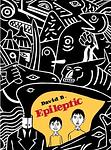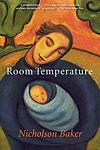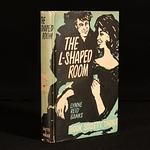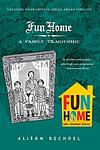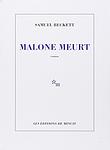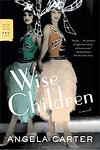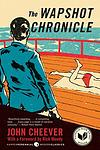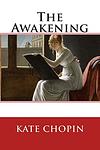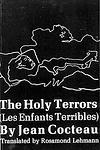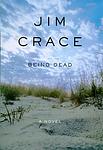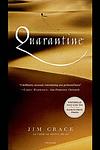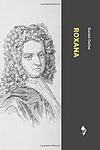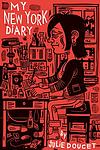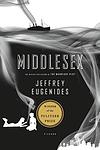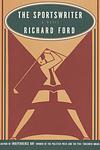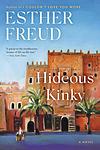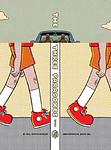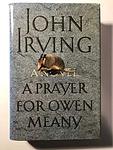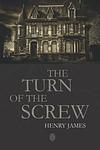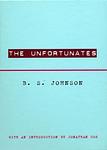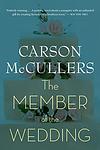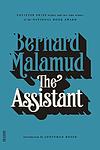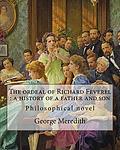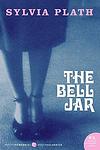1000 Novels Everyone Must Read
This is one of the 305 lists we use to generate our main The Greatest Books list.
-
Epileptic by David B
This graphic novel is a poignant and visually striking autobiography that delves into the author's childhood and early adulthood, focusing on the profound impact of his brother's severe epilepsy on their family. The narrative explores the family's relentless quest for a cure, spanning from traditional medicine to more esoteric and spiritual healers, against the backdrop of the author's developing passion for drawing. The artwork, characterized by its intricate and symbolic style, powerfully conveys the emotional turmoil, isolation, and the struggle with identity and family dynamics that the author experiences. This work is not only a personal story of living with a sibling's chronic illness but also a reflection on the nature of illness, the quest for healing, and the resilience of family bonds.
The 6236th Greatest Book of All Time -
Room Temperature by Nicholson Baker
This novel offers an intimate glimpse into the mind of a young father as he feeds his infant daughter a bottle of milk in the span of one hour. Set against the backdrop of a quiet afternoon in their family home, the narrative delves deep into the protagonist's stream of consciousness, exploring his reflections on various aspects of life, including parenthood, marriage, and the minutiae of everyday existence. Through his contemplations, the book presents a rich tapestry of thoughts and memories, revealing the profound in the mundane and highlighting the intricate connections between the past and the present.
The 5642nd Greatest Book of All Time -
Eugenie Grandet by Honoré de Balzac
"Eugenie Grandet" is a classic French novel that explores the life of a wealthy and miserly provincial businessman and his daughter, Eugenie. The father's obsession with wealth and his refusal to spend any of it leads to a life of hardship for Eugenie, who is in love with her penniless cousin. The novel delves into themes of wealth, love, sacrifice, and the complexities of human nature, shedding light on the oppressive social norms of 19th-century French provincial life.
The 540th Greatest Book of All Time -
Father Goriot by Honoré de Balzac
"Father Goriot" is a classic French novel that explores the themes of wealth, power, love, and social status in 19th century Paris. The narrative follows the lives of three main characters: a young, ambitious law student who seeks to rise above his modest background; an elderly, once-wealthy man who has sacrificed everything for his two ungrateful daughters; and a crafty, ruthless criminal who manipulates others for his own gain. Their stories intertwine in a boarding house, revealing the harsh realities of Parisian society and the destructive power of unchecked ambition and selfishness.
The 207th Greatest Book of All Time -
The Crow Road by Iain Banks
"The Crow Road" is a darkly humorous and complex tale of a Scottish family, told through the eyes of a young man who is trying to make sense of his life and the mysterious disappearance of his uncle. The protagonist's journey takes him through various experiences including love, death, and the discovery of a novel written by his missing uncle. The narrative is a fascinating blend of family saga, coming-of-age story, and mystery thriller, all set against the backdrop of Scotland's landscapes and culture.
The 2161st Greatest Book of All Time -
The L Shaped Room by Lynne Reid Banks
This novel explores the life of a young, unmarried woman who finds herself pregnant and is subsequently disowned by her father. In search of a new beginning, she moves into a dingy L-shaped room in a boarding house in London. The narrative delves into her struggles and the relationships she forms with the other residents of the house, who are considered misfits by society. Through her journey, the book addresses themes of prejudice, love, and the resilience of the human spirit, as she confronts societal norms and expectations in the 1950s.
The 4149th Greatest Book of All Time -
Fun Home: A Family Tragicomic by Alison Bechdel
The graphic memoir revolves around the author's childhood and youth in rural Pennsylvania, United States, in the backdrop of a dysfunctional family. The story particularly focuses on her complex relationship with her closeted gay father, who was an English teacher, a funeral home director, and a historic home restorer. The narrative is non-linear, exploring themes of sexuality, gender roles, suicide, emotional abuse, and the role of literature in understanding oneself and one's family.
The 2003rd Greatest Book of All Time -
Malone Dies by Samuel Beckett
"Malone Dies" is a narrative that delves into the mind of an elderly man who lies in a decrepit room, slowly dying. Throughout the novel, the protagonist grapples with his impending demise, while reflecting on his past. He also creates characters and stories within his mind to cope with his solitude and despair. The novel, characterized by its stream-of-consciousness style and bleak outlook, is a profound exploration of the human condition, mortality, and the nature of existence.
The 355th Greatest Book of All Time -
A Legacy by Sybille Bedford
"A Legacy" is a historical novel that captures the social and political turmoil of early 20th century Germany through the eyes of its protagonist. The story follows a young woman who hails from two distinct families, one being a wealthy Jewish family from Berlin and the other, an aristocratic Catholic family from rural Germany. The narrative provides a detailed account of the protagonist's life, her family's eccentricities, and the eventual downfall of her families amidst the backdrop of the First World War and the Weimar Republic.
The 1369th Greatest Book of All Time -
Herzog by Saul Bellow
The novel centers around Moses Herzog, a middle-aged, intelligent yet distressed man who is going through a mid-life crisis. After his second marriage fails, he falls into a state of emotional turmoil and begins writing letters to friends, family, and even famous figures, expressing his philosophical thoughts and personal feelings. His journey of self-discovery and understanding forms the crux of the story. It's a profound exploration of a man's struggle with the complexities of life and his quest for meaning.
The 197th Greatest Book of All Time -
Humboldt's Gift by Saul Bellow
This novel explores the friendship between a successful writer and his mentor, a once-celebrated poet now living in poverty and mental instability. As the protagonist navigates his own existential crisis amidst a life of material success, he reflects on the ideals of his mentor and the nature of art and personal ambition. The narrative grapples with themes of materialism, the purpose of art, and the spiritual emptiness of modern life.
The 534th Greatest Book of All Time -
The Old Wives' Tale by Arnold Bennett
This novel explores the lives of two sisters, Constance and Sophia Baines, who are brought up in a small town drapery shop in the mid-19th century. Constance remains in their hometown, marries and leads a relatively uneventful life, while Sophia elopes to Paris with a traveling salesman, living through the Siege of Paris and the Franco-Prussian War. The book contrasts the sisters' different experiences and how their choices shape their lives, ultimately reuniting them in their old age.
The 328th Greatest Book of All Time -
G. by John Berger
"G." is a historical novel set in Europe at the beginning of the 20th century, tracing the life of its eponymous and mysterious protagonist 'G.' The narrative explores his relationships with women and his experiences during significant historical events such as World War I and the Italian Risorgimento. The book also delves into themes such as sexual and political identity, and the personal impact of broad social changes.
The 1269th Greatest Book of All Time -
Extinction by Thomas Bernhard
"Extinction" is a novel that explores the dark and complex themes of family, identity, and history through the eyes of its protagonist, a professor living in Rome. When he receives news of the deaths of his parents and brother in a car accident, he is forced to confront his past and his Austrian heritage. The narrative delves into his thoughts and feelings, his criticisms of his family and society, and his philosophical musings on life and death, all while he prepares to return to his family's estate for the funeral. The novel is renowned for its dense, stream-of-consciousness style and its unflinching examination of the human condition.
The 1415th Greatest Book of All Time -
Two Serious Ladies by Jane Bowles
Two Serious Ladies is a novel that follows the lives of two women, Christina Goering and Frieda Copperfield, who are both on their own personal journeys of self-discovery. Christina, a wealthy spinster, decides to abandon her comfortable life to explore the darker side of society, while Frieda, a married woman, leaves her husband during a trip to Panama to pursue a relationship with a teenage prostitute. The novel explores themes of identity, sexuality, and societal norms, challenging traditional notions of femininity and respectability.
The 1927th Greatest Book of All Time -
Any Human Heart by William Boyd
This novel unfolds as the intimate journal of Logan Mountstuart, chronicling his life from the early 20th century through to the end of the 1980s. Through the eyes of Mountstuart, readers experience the defining historical, cultural, and personal events of the century. From his youth in Uruguay to his education in England, his experiences in war, love, and loss, and his encounters with the century's great artists, writers, and thinkers, the narrative captures the essence of human experience. The protagonist's journey through the highs and lows of life, his successes and failures, and his reflections on the human condition, make this a deeply personal and universally resonant story.
The 6666th Greatest Book of All Time -
Death of Virgil by Hermann Broch
The novel explores the final hours of the Roman poet Virgil, who, while on his deathbed, contemplates the value and impact of his life's work, particularly his unfinished epic, the Aeneid. The narrative is a complex, stream-of-consciousness meditation on art, life, and death, with Virgil wrestling with his desire to burn his epic and the emperor's command to preserve it. The book delves into themes of the meaning of human existence, the role of art in society, and the clash between the individual's inner world and the external world.
The 348th Greatest Book of All Time -
Evelina by Fanny Burney
The novel follows the journey of a young, naive girl named Evelina as she navigates the complex societal norms of 18th-century England. Raised in rural obscurity, Evelina's life changes dramatically when she enters London's high society. She must learn to navigate the treacherous waters of social etiquette, romantic interest, and the dangers that come with being a beautiful, young woman in a world dominated by men. Throughout her journey, Evelina struggles to maintain her virtue and innocence while dealing with the advances of various suitors, providing a humorous and satirical look at the gender dynamics and social conventions of the time.
The 954th Greatest Book of All Time -
Way of All Flesh by Samuel Butler
The novel follows the life of Ernest Pontifex, from his birth in the early 19th century until his middle age, and his struggle against the restrictive morality of Victorian England. Raised in a stiflingly oppressive household by his hypocritical clergyman father and submissive mother, Ernest eventually rebels against his upbringing, leading to his imprisonment for a minor crime. Upon his release, he rejects his past life and religious beliefs, eventually finding happiness and success as a writer. The novel provides a scathing satire of Victorian-era attitudes towards religion and family life.
The 539th Greatest Book of All Time -
The Sound Of My Voice by Ron Butlin
This novel offers a poignant and introspective look into the life of its protagonist, a successful advertising executive who is grappling with a deep-seated sense of dissatisfaction and the creeping realization of his alcoholism. Through a unique second-person narrative, readers are drawn intimately into the protagonist's internal struggles, as he attempts to navigate his professional responsibilities, personal relationships, and the increasingly blurred lines between his public facade and private despair. The narrative style creates a compelling and immersive experience, highlighting the complexities of identity, the pressures of societal expectations, and the silent battle many face with addiction.
The 5372nd Greatest Book of All Time -
The Stranger by Albert Camus
The narrative follows a man who, after the death of his mother, falls into a routine of indifference and emotional detachment, leading him to commit an act of violence on a sun-drenched beach. His subsequent trial becomes less about the act itself and more about his inability to conform to societal norms and expectations, ultimately exploring themes of existentialism, absurdism, and the human condition.
The 31st Greatest Book of All Time -
Wise Children by Angela Carter
"Wise Children" follows the lives of twin chorus girls, Dora and Nora Chance, as they navigate the ups and downs of their theatrical family in south London. The narrative, told from Dora's perspective, weaves in and out of time, recounting their experiences with their illegitimate father Melchior Hazard, a renowned Shakespearean actor, and his legitimate family. The novel explores themes of family, identity, legitimacy, and the magic of theater, all while maintaining a humorous and irreverent tone.
The 1454th Greatest Book of All Time -
The Professor's House by Willa Cather
"The Professor's House" is a narrative revolving around a middle-aged professor who is struggling with a mid-life crisis. As he moves into a new home, he can't help but feel disconnected from his family and former life. His only solace is his unfinished study in his old house, where he spends most of his time. The book also explores his relationship with his former student, Tom Outland, whose story of discovering an ancient Native American settlement in the Southwest impacts the professor deeply. The novel explores themes of change, nostalgia, and the search for meaning in life.
The 1209th Greatest Book of All Time -
The Wapshot Chronicle by John Cheever
"The Wapshot Chronicle" is a novel that explores the lives of the eccentric Wapshot family, who live in a quaint New England village. The story primarily focuses on the experiences of Leander Wapshot, the patriarch, and his two sons, Moses and Coverly, as they navigate through life's challenges. While Leander grapples with his advancing age and nostalgia, his sons are sent to find their own paths, dealing with their sexual identities, love, and their place in the world. This narrative is a blend of humor, tragedy, and family dynamics, showcasing the complexities of life and human nature.
The 1444th Greatest Book of All Time -
The Awakening by Kate Chopin
"The Awakening" is a novel set in the late 19th century New Orleans, which explores the life of a young woman trapped in societal and marital expectations. She embarks on a journey of self-discovery and independence, defying the norms of her time. The protagonist challenges the traditional roles of women as she seeks personal fulfillment, experiences sexual awakening, and struggles with her desires and responsibilities. The book is a critique of the repressive social norms, particularly regarding women and marriage, of the Victorian era.
The 200th Greatest Book of All Time -
Les Enfants Terribles by Jean Cocteau
"Les Enfants Terribles" is a haunting tale of sibling love and rivalry. The story revolves around two siblings, Elisabeth and Paul, who create a private world of their own, isolated from the outside world, in a Parisian apartment. Their intense bond is both destructive and all-consuming, causing them to reject the outside world and its conventions. This results in a tragic ending, as their intense relationship leads to a series of unfortunate events, including heartbreak, manipulation, and ultimately, death.
The 1110th Greatest Book of All Time -
The Vagabond by Colette
This novel follows the journey of Renée Néré, a 33-year-old divorcee who, after enduring the betrayal and abandonment of her husband, embarks on a path of self-discovery and independence through her work as a music hall dancer. Set in early 20th-century France, the narrative delves into themes of love, freedom, and the quest for personal identity against the backdrop of societal expectations. As Renée grapples with the allure of new love and the prospect of sacrificing her newfound autonomy, the story explores the complexities of the human heart and the courage required to live life on one's own terms. Through her introspective and resilient protagonist, the author offers a poignant examination of the struggles and triumphs of a woman seeking to redefine herself beyond the confines of conventional relationships.
The 4149th Greatest Book of All Time -
Manservant And Maidservant by Ivy Compton-Burnett
In this incisive novel, readers are introduced to the tyrannical Horace Lamb, who rules over his household and children with an iron fist, reveling in the power he wields and the misery he inflicts. However, the dynamics within the Lamb household begin to shift with the arrival of new servants and the evolving attitudes of his children, leading to unexpected alliances and revelations. Through sharp dialogue and keen observations, the narrative delves into themes of power, rebellion, and the complexities of human relationships, set against the backdrop of a traditional British household. The story masterfully explores the subtle forms of resistance against oppressive authority, and the possibility of change in even the most rigid structures.
The 4149th Greatest Book of All Time -
Being Dead by Jim Crace
"Being Dead" is a novel that explores the themes of life, death, and love through the story of a married couple, both zoologists, who are brutally murdered on a beach. The narrative alternates between the present, where their bodies lie undiscovered, and the past, revealing the couple's history and the events leading up to their death. The book delves into the natural process of decomposition and the indifference of nature to human life and death, challenging the reader's perspective on mortality.
The 5013th Greatest Book of All Time -
Quarantine by Jim Crace
Set in the Judean desert, the book tells the story of a group of individuals who have chosen to quarantine themselves for forty days in order to find spiritual growth and healing. Among them is a young man who believes he is the son of God. As they battle the harsh conditions, their physical and psychological limits are tested, leading to a climactic and tragic end. The novel offers a unique interpretation of the biblical story of Jesus's forty-day fast in the wilderness.
The 3633rd Greatest Book of All Time -
The Mandarins by Simone de Beauvoir
"The Mandarins" is a novel that explores the personal and political lives of a group of intellectuals in post-World War II France. The narrative delves into their struggles with ethical dilemmas, political ideologies, and personal relationships in a rapidly changing world. The book is known for its exploration of existentialism and feminism, providing a vivid portrayal of the human condition and the complexities of freedom.
The 541st Greatest Book of All Time -
Roxana: The Fortunate Mistress by Daniel Defoe
This novel tells the story of a beautiful and intelligent woman who, after being abandoned by her financially irresponsible husband, navigates the treacherous waters of 18th-century English society to secure her and her children's future. Facing moral and societal challenges, she assumes the identity of "Roxana" and uses her wit, beauty, and charm to ascend the social ladder, becoming the mistress of several wealthy men. Throughout her journey, she grapples with the consequences of her choices, the pursuit of wealth and status, and the desire for independence in a male-dominated world. The narrative explores themes of femininity, morality, and survival, offering a complex portrait of a woman striving to control her own destiny in a time when women's options were severely limited.
The 4149th Greatest Book of All Time -
Great Expectations by Charles Dickens
A young orphan boy, living with his cruel older sister and her kind blacksmith husband, has an encounter with an escaped convict that changes his life. Later, he becomes the protégé of a wealthy but reclusive woman and falls in love with her adopted daughter. He then learns that an anonymous benefactor has left him a fortune, leading him to believe that his benefactor is the reclusive woman and that she intends for him to marry her adopted daughter. He moves to London to become a gentleman, but his great expectations are ultimately shattered when he learns the true identity of his benefactor and the reality of his love interest.
The 33rd Greatest Book of All Time -
The Brothers Karamazov by Fyodor Dostoevsky
This classic novel explores the complex, passionate, and troubled relationship between four brothers and their father in 19th century Russia. The narrative delves into the themes of faith, doubt, morality, and redemption, as each brother grapples with personal dilemmas and family conflicts. The story culminates in a dramatic trial following a murder, which serves as a microcosm of the moral and philosophical struggles faced by each character, and by extension, humanity itself.
The 32nd Greatest Book of All Time -
My New York Diary by Julie Doucet
This graphic novel offers a raw and unflinching autobiographical account of a young woman's experiences when she moves to New York City. Through a series of vivid, often gritty, comic strips, the narrative delves into her struggles with relationships, her aspirations as an artist, and her battles with personal demons. The protagonist's journey is marked by moments of intense vulnerability, creativity, and self-discovery, set against the chaotic backdrop of urban life. The artwork, characterized by its detailed and expressive style, complements the emotional depth of the story, making it a compelling exploration of youth, ambition, and the search for identity.
The 6486th Greatest Book of All Time -
The Millstone by Margaret Drabble
This novel explores the life of a young, single, and intellectual woman living in London during the 1960s, who finds herself unexpectedly pregnant after a one-night stand. As she decides to keep the baby, she faces the challenges of motherhood alone, in an era when single parenthood was stigmatized. The narrative delves into her journey of self-discovery, resilience, and the transformation of her values and lifestyle. Through her experiences, the book offers a poignant commentary on societal expectations, the complexities of personal freedom, and the profound impact of motherhood on a woman's identity.
The 4149th Greatest Book of All Time -
My Family And Other Animals by Gerald Durrell
In this humorous and heartwarming memoir, a young boy named Gerald Durrell recounts his unconventional upbringing on the idyllic Greek island of Corfu. Surrounded by a colorful cast of eccentric family members and a menagerie of unique animals, Gerald's adventures and misadventures bring joy and laughter to readers as he navigates the wonders of nature and the challenges of growing up. With vivid descriptions and witty anecdotes, this book is a delightful tribute to the beauty of the natural world and the bonds of family.
The 766th Greatest Book of All Time -
Silence by Shūsaku Endō
"Silence" is a historical novel set in the 17th century, which follows a Portuguese Jesuit missionary who travels to Japan to comfort local Christians and find his mentor, who is rumored to have renounced his faith. The protagonist experiences the brutal persecution of Christians by the Japanese government, and grapples with the silence of God in the face of suffering. The narrative explores themes of faith, doubt, cultural clash, and the human capacity for both cruelty and endurance.
The 1161st Greatest Book of All Time -
The Gathering by Anne Enright
"The Gathering" is a powerful and evocative family saga set in Ireland, exploring the complex dynamics of a large Irish family following the suicide of one of the siblings. The story is narrated by Veronica, the sister of the deceased, who delves into her family's past, uncovering a traumatic event that has shaped their lives. The narrative is a mix of present events, childhood memories, and imagined scenarios, all of which contribute to a profound exploration of memory, truth, and the bonds of family.
The 3063rd Greatest Book of All Time -
Middlesex by Jeffrey Eugenides
The book follows the life of Calliope Stephanides, a Greek-American hermaphrodite, who narrates her epic story starting from her grandparents' incestuous relationship in a small village in Asia Minor to her own self-discovery in 20th century America. The novel delves into themes of identity, gender, and the American dream, while also providing a detailed history of Detroit through the eyes of three generations of an immigrant family.
The 444th Greatest Book of All Time -
As I Lay Dying by William Faulkner
The narrative unfolds through the eyes of 15 different characters over 59 chapters. It is the story of the death of Addie Bundren and her poor, rural family's quest and motivations—noble or selfish—to honor her wish to be buried in her hometown of Jefferson, Mississippi. As the Bundren family undertakes a journey to fulfill Addie's last wish, they face many hardships and personal revelations. The novel explores themes of existentialism, death, and the nature of family relationships.
The 67th Greatest Book of All Time -
The Sound and the Fury by William Faulkner
The novel is a complex exploration of the tragic Compson family from the American South. Told from four distinct perspectives, the story unfolds through stream of consciousness narratives, each revealing their own understanding of the family's decline. The characters grapple with post-Civil War societal changes, personal loss, and their own mental instability. The narrative is marked by themes of time, innocence, and the burdens of the past.
The 21st Greatest Book of All Time -
The Sportswriter by Richard Ford
This novel explores the life of a suburban New Jersey man who makes his living as a sportswriter. After experiencing the death of his son and subsequent divorce, he attempts to maintain a positive outlook on life and keep his personal despair at bay. The book delves into his relationships, encounters, and introspections during a transformative Easter weekend, providing a deep analysis of his character and his struggle to find meaning and purpose in the face of tragedy.
The 1322nd Greatest Book of All Time -
Howards End by E. M. Forster
This novel explores class relations and conflicting values in turn-of-the-century England. The narrative revolves around three families: the wealthy, capitalist Wilcoxes; the cultured, idealistic Schlegels; and the lower-middle class Basts. As their lives intertwine, the story grapples with themes of wealth, love, and death, and the struggle for personal connection in an increasingly impersonal society. The titular "Howards End" is a country home, and it becomes a symbol of England's past, present, and future.
The 158th Greatest Book of All Time -
Spies by Michael Frayn
In the novel, two boys, Stephen and Keith, live in a quiet English suburb during World War II. Keith's mother becomes the object of their spy games when they suspect her of being a German spy. As the boys delve deeper into their espionage, they uncover secrets that change their understanding of their families, their neighborhood, and themselves. The story is a poignant exploration of childhood innocence, friendship, and the loss of innocence that comes with knowledge.
The 6546th Greatest Book of All Time -
Hideous Kinky by Esther Freud
A young woman travels to Morocco with her two daughters in search of a more fulfilling and adventurous life. The novel explores the experiences of the two young girls as they navigate this new and unfamiliar culture, their mother's search for spiritual enlightenment, and their struggles with poverty. The narrative is a poignant exploration of childhood innocence, the complexities of motherhood, and the clash of cultures.
The 2161st Greatest Book of All Time -
The Man of Property by John Galsworthy
"The Man of Property" is a novel set in the late 19th century England, focusing on the wealthy Forsyte family. The story revolves around Soames Forsyte, a successful solicitor who views everything, including his beautiful wife Irene, as property. His possessiveness and inability to comprehend love and passion lead to a marital crisis and a scandal within the family. The novel explores themes of wealth, social status, love, and the concept of property, offering a critique of the materialistic upper-middle-class society of the time.
The 2399th Greatest Book of All Time -
Mary Barton by Elizabeth Gaskell
The novel is a poignant social commentary set in the industrial city of Manchester during the 1840s, exploring the harsh realities of working-class life. It follows the story of the titular character, a young woman whose life is marred by personal tragedy, including the loss of her loved ones to poverty and illness. As she navigates the chasm between the poor mill workers and the wealthy mill owners, the narrative delves into themes of love, class conflict, and the struggle for justice. The protagonist becomes embroiled in a dramatic tale of murder and mistaken identity, which ultimately leads to a quest for forgiveness and reconciliation amidst the prevailing social injustices of the time.
The 997th Greatest Book of All Time -
The Immoralist by André Gide
"The Immoralist" is a novel that explores the journey of a man who, after a near-death experience, indulges in hedonistic and selfish behavior, rejecting societal norms and moral constraints. The protagonist, a scholar, embarks on a journey of self-discovery and self-indulgence after being diagnosed with tuberculosis. His pursuit of physical and sensual experiences leads him to abandon his wife and career, leading to a life of isolation and self-destruction. The book delves into themes of morality, freedom, and the human condition.
The 588th Greatest Book of All Time -
The Vatican Cellars by Andre Gide
The novel unfolds as a satirical adventure, delving into the complexities of faith, deception, and the human quest for meaning. Set against the backdrop of early 20th-century Europe, it follows the journey of Lafcadio, a young man whose paths cross with an eclectic mix of characters, including anarchists, aristocrats, and religious figures, each embroiled in their own pursuits of ideology, power, and salvation. Central to the plot is a meticulously planned hoax involving the Pope, which spirals into a series of events that challenge the characters' beliefs and intentions. Through its intricate narrative and sharp critique of societal norms, the book explores themes of morality, authenticity, and the absurdity of human endeavors.
The 4149th Greatest Book of All Time -
The Vicar of Wakefield by Oliver Goldsmith
"The Vicar of Wakefield" follows the life of Dr. Primrose, a vicar living happily with his wife and six children in an affluent English parish. However, their lives take a drastic turn when they lose their fortune and are forced to move to a new, more modest parish. Despite facing numerous hardships, including the imprisonment of Dr. Primrose and the abduction of his daughter, the family remains resilient, relying on their faith and love for each other to overcome adversity. The story is a classic portrayal of family values, resilience, and the triumph of virtue over vice.
The 414th Greatest Book of All Time -
The Power and the Glory by Graham Greene
The novel is set during the Mexican Revolution, focusing on a whisky priest who is on the run from the authorities who have outlawed Catholicism. The priest, who is flawed and sinful, travels across the country to evade capture, minister to the faithful, and find a way to repent for his sins. Despite his moral failings, the priest's compassion and commitment to his faith make him a symbol of hope and resilience in the face of oppression. The book explores themes of faith, redemption, and the human struggle with sin.
The 350th Greatest Book of All Time -
Hunger by Knut Hamsun
This novel is a psychological journey through the mind of a starving young writer in 19th century Norway. Driven by pride and stubbornness, he refuses to accept help and instead chooses to endure severe hunger and the mental and physical deterioration it causes. His struggle is not only with his physical condition but also with his own mind as he battles hallucinations, mood swings, and an increasingly distorted perception of reality. The book is a profound exploration of poverty, mental illness, and the human will to survive.
The 302nd Greatest Book of All Time -
The Shrimp And The Anemone by L. P. Hartley
This novel explores the complex relationship between two siblings, Eustace and Hilda, during their childhood in the early 20th century. Set against the backdrop of a seaside town in England, the story delves into themes of innocence, cruelty, and the loss of innocence through the lens of their interactions and experiences. The title metaphorically reflects the dynamic between the siblings, with Eustace's vulnerability and sensitivity contrasted against Hilda's protective yet sometimes domineering nature. As they navigate their young lives, the book poignantly captures the nuances of growing up and the intricate bonds of family.
The 4149th Greatest Book of All Time -
The Old Man and the Sea by Ernest Hemingway
An aging Cuban fisherman struggles with a giant marlin far out in the Gulf Stream, isolated from the world and from human help. For days, he fights the marlin alone, admiring its strength, dignity, and faithfulness to its identity—its destiny is as true as his as a fisherman. He finally kills the marlin, but sharks attack and devour it before he can return to the shore. The fisherman returns home empty-handed but remains undefeated, having proven his abilities to himself.
The 81st Greatest Book of All Time -
Steppenwolf by Hermann Hesse
The novel presents a poignant exploration of a man's struggle with his dual nature. The protagonist, a middle-aged man, finds himself torn between his humanistic, intellectual tendencies and his more primitive, wolf-like instincts. As he navigates his way through the surreal and sometimes hallucinatory world, he encounters various characters who challenge his views and push him towards self-discovery and transformation. The narrative delves into themes of alienation, the subconscious mind, and the search for meaning in life.
The 147th Greatest Book of All Time -
Narcissus And Goldmund by Hermann Hesse
The novel explores the complex friendship between two diametrically opposed characters: one, a cerebral and ascetic monk dedicated to a life of contemplation and spiritual discipline, and the other, a passionate and sensual artist driven by the pursuit of beauty and worldly experiences. Set against the backdrop of medieval Europe, the story delves into themes of duality, the search for meaning, and the reconciliation of the spiritual with the carnal. As the two men journey through their lives, their intertwined paths lead them to profound insights about the nature of human existence, creativity, and the eternal struggle between the intellect and the senses.
The 1670th Greatest Book of All Time -
The Three Paradoxes by Paul Hornschemeier
This graphic novel intricately weaves together the story of a young man's visit to his parents' home with philosophical musings and historical vignettes. Through a blend of autobiographical elements and fictional narratives, it explores complex themes such as the nature of reality, the passage of time, and the search for meaning in life. The protagonist's introspective journey is illustrated through a series of paradoxes that delve into the contradictions of human existence, juxtaposing his personal experiences with broader philosophical and historical contexts. The novel's unique structure and visually engaging artwork invite readers to ponder the intricacies of life, identity, and the interconnectedness of past and present.
The 7144th Greatest Book of All Time -
Tom Brown's School Days by Thomas Hughes
The book is a classic work of Victorian literature that recounts the experiences of a boy named Tom Brown at Rugby School, an English public school for boys, in the early 19th century. It follows Tom's journey from a carefree, mischievous youth to a responsible young man, under the guidance of the wise and compassionate headmaster, Dr. Thomas Arnold. The novel addresses themes of bullying, integrity, sportsmanship, and the importance of developing character. It is celebrated for its vivid portrayal of school life and its influence on the British public school system, promoting a model of manliness and moral conduct.
The 2304th Greatest Book of All Time -
A Prayer for Owen Meany by John Irving
The book is a tale of two childhood friends, one of whom believes he is God's instrument. The story is set in a New England town during the 1950s and 1960s and follows the lives of the two boys, one small and with a strange voice, who has visions of his own death and believes he is an instrument of God, and the other, the narrator, who struggles with faith. The novel explores themes of faith, fate, and the power of friendship against a backdrop of historical and political events, including the Vietnam War.
The 280th Greatest Book of All Time -
The Ambassadors by Henry James
The novel centers around a middle-aged man named Lambert Strether who is sent from New England to Paris by a wealthy widow, Mrs. Newsome, to convince her wayward son, Chad, to return home. However, upon arriving in Europe, Strether is charmed by the sophisticated lifestyle Chad has adopted and finds himself questioning the puritanical values of his homeland. He also becomes entangled in romantic relationships and complex social dynamics, leading him to ultimately question his loyalty to Mrs. Newsome. The book explores themes of morality, identity, and the concept of the American versus European lifestyle.
The 208th Greatest Book of All Time -
The Turn of the Screw by Henry James
A young governess is hired to care for two children at a remote English estate. However, she soon becomes convinced that the grounds are haunted by two former employees who have taken control of the children. As she fights to free the children from these apparitions, the line between reality and her own fears becomes increasingly blurred, leading to a chilling and ambiguous conclusion.
The 270th Greatest Book of All Time -
The Tortoise And The Hare by Elizabeth Jenkins
In this insightful social commentary set in the interwar years of England, the novel explores the dynamics of a mismatched marriage between Imogen Gresham, a beautiful, innocent woman, and her husband Evelyn, a charming but cruel man. The narrative delves into the emotional and psychological impact of their relationship, particularly as it deteriorates under the strain of Evelyn's infidelity and emotional abuse. The arrival of a seemingly unremarkable governess, who is likened to a tortoise, sets the stage for a subtle yet profound upheaval within the household, challenging the established social order and the characters' understanding of success and happiness.
The 2241st Greatest Book of All Time -
The Unfortunates by B. S. Johnson
"The Unfortunates" is a unique and experimental novel that explores the fragmented nature of memory and grief through the eyes of a sportswriter who is sent to cover a football match in a city where he once had a close friend who died of cancer. The narrative is presented in a non-linear fashion, with the book consisting of 27 unbound sections (apart from the first and last chapter), allowing readers to experience the story in a random order, mirroring the protagonist's stream of consciousness and the unpredictable way memories resurface. The work delves into themes of loss, friendship, and the randomness of life, as the narrator's recollections and reflections on his past with his friend are interwoven with his observations of the present day.
The 2241st Greatest Book of All Time -
A Portrait of the Artist as a Young Man by James Joyce
This novel is a semi-autobiographical account of a young man's intellectual and artistic development in late 19th-century Ireland. The protagonist struggles with issues of identity, faith, and nationality, ultimately rejecting the traditional values of his Catholic upbringing to pursue his own path as an artist. The book is renowned for its innovative narrative style and its exploration of themes such as individuality, freedom, and the nature of art.
The 68th Greatest Book of All Time -
Ulysses by James Joyce
Set in Dublin, the novel follows a day in the life of Leopold Bloom, an advertising salesman, as he navigates the city. The narrative, heavily influenced by Homer's Odyssey, explores themes of identity, heroism, and the complexities of everyday life. It is renowned for its stream-of-consciousness style and complex structure, making it a challenging but rewarding read.
The 3rd Greatest Book of All Time -
Good Behaviour by Molly Keane
"Good Behaviour" is a darkly humorous and compelling novel that delves into the dysfunctional lives of the St. Charles family. Set in the early 20th century, the story is narrated by Aroon, the youngest daughter, who chronicles her family's eccentricities, secrets, and the complex dynamics that shape their relationships. As Aroon navigates her way through a world of privilege and societal expectations, she grapples with her own desires and the consequences of her actions. With sharp wit and keen observations, the novel explores themes of love, betrayal, and the lengths people will go to maintain appearances.
The 2323rd Greatest Book of All Time -
Memed, My Hawk by Yashar Kemal
"Memed, My Hawk" is a novel set in the harsh and lawless rural Turkey of the 1920s. It follows the story of a young boy, Memed, who becomes an outlaw and a local hero after standing up to the corrupt authorities and feudal landlords who oppress his village. The novel explores themes of love, revenge, and social justice, and is a powerful indictment of the social and economic conditions of rural Turkey in the early 20th century.
The 1008th Greatest Book of All Time -
One Flew Over the Cuckoo's Nest by Ken Kesey
Set in a psychiatric hospital in Oregon, the novel is narrated by a half-Native American patient known as Chief Bromden, who pretends to be deaf and mute. The story follows the arrival of a new patient, a boisterous, rebellious man who challenges the oppressive and dehumanizing system of the hospital, particularly the tyrannical Nurse Ratched. The book explores themes of individuality, rebellion, and the misuse of power, ultimately leading to a tragic conclusion.
The 98th Greatest Book of All Time -
The Buddha of Suburbia by Hanif Kureishi
"The Buddha of Suburbia" is a coming-of-age novel that explores themes of race, class, and sexuality in 1970s London. The story follows the life of the protagonist, a young man of mixed English and Pakistani heritage, as he navigates his identity in the backdrop of suburban London. His father, a self-proclaimed guru, adds a layer of complexity to his journey. The novel is a darkly humorous critique of British society and its attitudes towards race and class.
The 1151st Greatest Book of All Time -
Sons and Lovers by D. H. Lawrence
"Sons and Lovers" is a semi-autobiographical novel that explores the complex relationships between a miner's wife, her husband, and their two sons. The story focuses on the intense emotional and psychological bonds between the mother and her sons, as well as the struggles they face in their romantic relationships due to their deep attachment to their mother. The novel delves into themes of class, love, sexuality, and the oedipal complex, presenting a vivid picture of working-class life in early 20th century England.
The 125th Greatest Book of All Time -
Cider with Rosie by Laurie Lee
"Cider with Rosie" is a memoir that captures the experiences of a young boy growing up in a small Cotswold village in England during the early 20th century. The narrative vividly portrays the simplicity and beauty of rural life, while also exploring the complexities of adolescence and first love. It is a nostalgic and evocative account of a bygone era, filled with memorable characters and richly detailed descriptions of the natural world.
The 655th Greatest Book of All Time -
Invitation To The Waltz by Rosamond Lehmann
This novel is a coming-of-age story that captures the excitement and anxieties of a young girl, Olivia Curtis, as she prepares for her first ball. Set in England in the early 20th century, the narrative unfolds over the course of Olivia's seventeenth birthday, leading up to the evening of the dance. Through her eyes, readers experience the anticipation and the transformative journey of adolescence, as Olivia navigates family dynamics, social expectations, and her own desires. The ball becomes a microcosm of the larger world, where Olivia encounters a range of characters and experiences that contribute to her understanding of society and her place within it. The novel is celebrated for its vivid characterizations, emotional depth, and the evocative portrayal of a young woman's awakening to the complexities of adulthood.
The 4149th Greatest Book of All Time -
The Golden Notebook by Doris Lessing
The novel centers around a woman named Anna Wulf, a writer who keeps four notebooks, each representing a different aspect of her life: her experiences in Africa, her current life in London, a novel she is writing, and her personal experiences. As Anna's mental state deteriorates, she attempts to unify her fragmented self in a fifth notebook, the golden notebook. The novel explores themes of mental breakdown, communism, the changing role of women, and the fear of nuclear war.
The 94th Greatest Book of All Time -
How Green Was My Valley by Richard Llewellyn
This novel is a poignant coming-of-age tale set in a Welsh mining community. The narrative follows the life of a young boy and his family as they navigate the harsh realities of the coal industry, including strikes, poverty, and social unrest. Despite these hardships, the book also explores themes of love, family bonds, and the beauty of the Welsh landscape. The boy's perspective offers a nostalgic view of a simpler time and the loss of traditional ways of life due to industrialization.
The 2075th Greatest Book of All Time -
Martin Eden by Jack London
The novel follows the life of a poor, self-educated sailor who becomes a successful writer. The protagonist struggles to rise above his social class, driven by his love for a refined, upper-class woman. His journey leads him through various experiences, from physical labor to intellectual pursuits, highlighting the challenges of social mobility and the disillusionment that often accompanies success. Despite achieving his dreams, he becomes disenchanted with the very society he sought to join, leading to a tragic end.
The 944th Greatest Book of All Time -
Under the Volcano by Malcolm Lowry
Set in Mexico on the Day of the Dead in 1938, the novel follows the last day in the life of Geoffrey Firmin, a British consul with a severe alcohol addiction. Through his interactions with his estranged wife and half-brother, the book explores themes of despair, betrayal, and the destructive power of addiction, against the backdrop of political and social unrest. The impending eruption of the nearby volcano serves as a metaphor for Firmin's deteriorating mental state and the looming world war.
The 119th Greatest Book of All Time -
The Member Of The Wedding by Carson McCullers
The novel centers around the life of a young girl named Frankie Addams who struggles with feelings of isolation and disconnection in her small Southern town. As she grapples with the complexities of adolescence, Frankie becomes obsessed with her older brother's upcoming wedding, seeing it as an opportunity to belong and escape her lonely existence. Her desire to be included in the "we" of her brother and his fiancée leads her to a series of poignant realizations about identity, belonging, and the pains of growing up. Set against the backdrop of World War II, the narrative explores themes of love, loss, and the search for personal significance.
The 1289th Greatest Book of All Time -
Palace Walk by Naguib Mahfouz
The novel is set in Cairo during World War I and revolves around the life of a conservative Muslim family. The patriarch, a shopkeeper, has two wives and several children, and the story explores the dynamics within the family, particularly the tyrannical father's relationships with his wives and children. As the family navigates through a changing society, they encounter various challenges including political unrest, societal norms, and the struggle between tradition and modernity.
The 1220th Greatest Book of All Time -
The Assistant by Bernard Malamud
"The Assistant" is a story about a struggling Jewish grocer in Brooklyn and his family, who are trying to make ends meet. Their lives dramatically change when a young Italian-American drifter comes to work as their assistant after he was involved in a robbery at their store. The narrative explores themes of guilt, redemption, and the power of good deeds, as the assistant tries to make amends for his past actions, slowly transforming his life and the lives of those around him.
The 1541st Greatest Book of All Time -
Buddenbrooks by Thomas Mann
"Buddenbrooks" is a novel that chronicles the decline of a wealthy north German merchant family over the course of four generations. The narrative focuses on the fluctuating fortunes and internal struggles of the family, reflecting the societal changes and economic decline of the period. The family's personal and business relationships, their moral values, and their struggle to maintain social status are all explored against the backdrop of the changing political and social landscape.
The 149th Greatest Book of All Time -
The Chateau by William Maxwell
This novel unfolds in the post-World War II era, focusing on an American couple, Harold and Barbara Rhodes, who travel to France for a summer vacation. Their stay at a chateau becomes a lens through which the complexities of Franco-American relations, personal transformation, and the lingering shadows of war are explored. As the couple navigates cultural misunderstandings and the nuances of human relationships, the narrative delves into themes of love, the search for understanding, and the quest for personal identity against the backdrop of a Europe rebuilding itself. The story is a poignant examination of the challenges and rewards of seeking connection and comprehension across cultural divides.
The 4149th Greatest Book of All Time -
The Rector's Daughter by F.M. Mayor
The novel delves into the life of a dutiful and unassuming clergyman's daughter living in a small English village. As she navigates the constraints of her social position and the expectations placed upon her, she develops a deep affection for a man who seems to reciprocate her feelings. However, their potential romance is thwarted by societal pressures and personal obligations, leading to a poignant exploration of unfulfilled love, personal sacrifice, and the quiet tragedies of an ordinary life marked by missed opportunities and the resilience of the human spirit in the face of disappointment and duty.
The 1864th Greatest Book of All Time -
The Ordeal Of Richard Feverel by George Meredith
The novel is a complex and often satirical coming-of-age story that follows the life of its protagonist, Richard Feverel, as he navigates the trials and tribulations of youth and adulthood. Raised under the strict and idiosyncratic "System" of his father, Sir Austin Feverel, which is intended to produce the perfect gentleman, Richard's life is meticulously controlled and guided. However, as he grows older, Richard falls in love, an experience that leads him to question and ultimately rebel against his father's rigid ideals. The narrative explores themes of love, passion, generational conflict, and the struggle between free will and destiny, as Richard's pursuit of personal happiness clashes with the expectations imposed upon him.
The 2010th Greatest Book of All Time -
Family Matters by Rohinton Mistry
This novel delves into the complexities of family life in Bombay, exploring the challenges and emotional turmoil within a small, crowded apartment that becomes a battleground of generational conflict. At the heart of the story is an elderly patriarch whose declining health necessitates care, leading to tensions and revealing the deep-seated resentments and secrets that threaten to tear the family apart. Through a rich tapestry of characters and meticulously detailed narrative, the book presents a poignant examination of duty, love, and the strains that familial obligations impose on individual desires and dreams, set against the backdrop of a rapidly changing Indian society.
The 5489th Greatest Book of All Time -
Sour Sweet by Timothy Mo
This novel delves into the lives of a Chinese immigrant family in London during the 1960s, exploring their struggles and aspirations as they navigate a new world far from their homeland. Through the lens of the Chen family, the narrative intricately weaves themes of cultural identity, adaptation, and the pursuit of the British dream, juxtaposing the sweetness of their hopes with the sourness of the challenges they face. The family's journey is marked by their encounters with the local community, the complexities of their own intergenerational dynamics, and the shadowy influences of the Triad, a Chinese organized crime syndicate, revealing a rich tapestry of immigrant life in a rapidly changing Britain.
The 4993rd Greatest Book of All Time -
The Lonely Passion of Judith Hearne by Brian Moore
The novel revolves around the life of Judith Hearne, a lonely middle-aged spinster living in 1950s Belfast who struggles with her declining social status and her increasing reliance on alcohol. As she desperately seeks companionship and purpose in life, she becomes infatuated with her boarding house's landlady's brother, only to face rejection and further isolation. The book explores themes of loneliness, faith, disillusionment, and the harsh realities of ageing.
The 1267th Greatest Book of All Time -
The Bluest Eye by Toni Morrison
The novel is a poignant tale of an African American girl named Pecola Breedlove who grows up during the years following the Great Depression. Living in a society that values beauty in terms of light skin and blue eyes, Pecola develops an inferiority complex and wishes for blue eyes, believing that it would make her beautiful and loved. The story explores themes of racial self-loathing, the standards of beauty, and the dynamics of power and oppression.
The 456th Greatest Book of All Time -
Song of Solomon by Toni Morrison
The novel explores the life of an African-American man, Macon "Milkman" Dead III, from birth to adulthood. Set against the backdrop of racial tension in the mid-20th century United States, it delves into his journey of self-discovery and understanding his heritage. As Macon embarks on a literal and figurative journey south to reconnect with his roots, he encounters various characters that help him understand his family history and the power of community. The narrative is deeply rooted in African-American folklore and mythology, offering a profound commentary on identity, personal freedom, and the destructive power of racism.
The 137th Greatest Book of All Time -
Who Do You Think You Are? by Alice Munro
"Who Do You Think You Are?" is a collection of short stories that follow the life of a woman named Rose from her childhood in rural Ontario through her adulthood as she navigates the complexities of relationships, personal identity, and social class. The stories explore themes of self-discovery, the nature of memory, and the impact of personal history on one's present. The narrative is a deep exploration of the human condition, revealing the intricacies of the protagonist's experiences, emotions, and perceptions.
The 1692nd Greatest Book of All Time -
The Black Prince by Iris Murdoch
"The Black Prince" is a captivating novel revolving around a middle-aged Londoner who falls passionately in love with the daughter of a close friend. As he navigates through the complexities of love, he experiences a profound transformation of character, leading him to question the nature of love, art, and personal identity. The story is told in a postmodern style, with multiple narrative perspectives, and explores themes of love, obsession, self-deception and psychological manipulation.
The 1307th Greatest Book of All Time -
The Man Without Qualities by Robert Musil
"The Man Without Qualities" is a satirical novel set in Vienna during the last days of the Austro-Hungarian Empire. It follows the life of Ulrich, a thirty-two-year-old mathematician, who is in search of a sense of life and reality but is caught up in the societal changes and political chaos of his time. The book explores themes of existentialism, morality, and the search for meaning in a rapidly changing world.
The 144th Greatest Book of All Time -
A House for Mr. Biswas by V. S. Naipaul
The novel narrates the life of Mr. Biswas, a man of Indian descent living in Trinidad, who struggles against poverty and adversity to achieve personal independence and to build a home for himself and his family. Born into a poor family and married into an oppressive one, he constantly strives for autonomy and identity against the backdrop of post-colonial Trinidad. His dream of owning his own house becomes a symbol of his desire for self-determination and respect in a society that often denies him both.
The 204th Greatest Book of All Time -
At Swim Two-Birds by Flann O'Brien
This novel is a complex, metafictional work that weaves together three separate narratives. The first is about a lazy, hard-drinking college student living with his uncle, the second is about a devilish Pooka and a loquacious old man, and the third is about a fictional character named Finn who seeks revenge on his author for creating him poorly. The narratives eventually intersect in a unique and humorous way, challenging traditional ideas of story structure and character autonomy.
The 296th Greatest Book of All Time -
Teach Us To Outgrow Our Madness by Kenzaburō Ōe
This book is a collection of four novellas that delve into the complexities of human nature, exploring themes of family, madness, and the struggle for understanding in a post-war Japanese society. Through the eyes of its varied protagonists, including a father grappling with his son's disability and a man confronting his father's legacy, the narrative weaves a poignant examination of the human condition, the search for meaning, and the desire for redemption. The author's masterful storytelling and deep philosophical inquiries offer a profound commentary on the capacity for growth and the necessity of compassion in the face of life's inherent challenges.
The 4149th Greatest Book of All Time -
The Moviegoer by Walker Percy
The protagonist, a young stockbroker in New Orleans, is alienated, detached, and finds more reality in movies and books than in his everyday life. He searches for meaning in life, often through his relationships with his aunt and his cousin, while also dealing with existential dread and the impending reality of turning 30. This exploration of alienation and search for identity in the modern world won the National Book Award for Fiction.
The 192nd Greatest Book of All Time -
The Bell Jar by Sylvia Plath
The novel follows the story of a young woman who wins a guest editorship at a magazine in New York City and, after a series of personal and professional disappointments, suffers a mental breakdown and returns to her family, where she continues to struggle with depression and suicidal thoughts. The protagonist's experiences in psychiatric institutions and her attempts to reclaim her life are depicted with brutal honesty, making it a poignant exploration of mental illness and the societal pressures faced by women in the mid-20th century.
The 78th Greatest Book of All Time -
My Name Is Asher Lev by Chaim Potok
The book centers on Asher Lev, a young boy from a Hasidic Jewish family in Brooklyn, who possesses a prodigious artistic talent that conflicts with his deeply religious community and his relationship with his parents. As Asher grows, he must navigate the tension between his passion for painting and the expectations of his faith and family. His journey of self-discovery and struggle for artistic expression leads him to study under a renowned artist, which further alienates him from his community and leads to a profound personal and spiritual reckoning. The novel explores themes of identity, tradition, and the often-painful pursuit of individuality within the confines of a strict cultural milieu.
The 2182nd Greatest Book of All Time -
The Good Companions by J. B. Priestley
"The Good Companions" is a heartwarming tale that follows a diverse group of individuals who come together to form a traveling concert party. As they embark on a journey across England, they encounter various challenges and adventures that test their friendships and resilience. Through their shared experiences, the characters discover the transformative power of companionship and the importance of finding joy and purpose in life. With its lively and engaging narrative, this novel celebrates the beauty of human connection and the pursuit of happiness.
The 2709th Greatest Book of All Time -
The Shipping News by Annie Proulx
The novel follows the story of a depressed and overweight man who moves with his two daughters to his ancestral home in Newfoundland, Canada, after his unfaithful wife dies in a car accident. There, he begins to rebuild his life, working as a reporter for the local newspaper, The Shipping News, and learning about the harsh realities of the fishing industry. As he delves into his family's history, he begins to find a sense of belonging and a new love. The story explores themes of family, identity, and the power of place.
The 369th Greatest Book of All Time
The Guardian, 997 Books
Selected by the Guardian’s Review team and a panel of expert judges, this list includes only novels – no memoirs, no short stories, no long poems – from any decade and in any language. Originally published in thematic supplements – love, crime, comedy, family and self, state of the nation, science fiction and fantasy, war and travel – they appear here for the first time in a single list.
Added about 1 month ago.
This list has a weight of 64%. To learn more about what this means please visit the Rankings page.
Here is a list of what is decreasing the importance of this list:
- Voters: specific voter details are lacking
- Voters: are mostly from a single country/location
- List: criteria is not just "best/favorite"
- List: contains over 500 books(Quantity over Quality)
If you think this is incorrect please e-mail us at [email protected].
